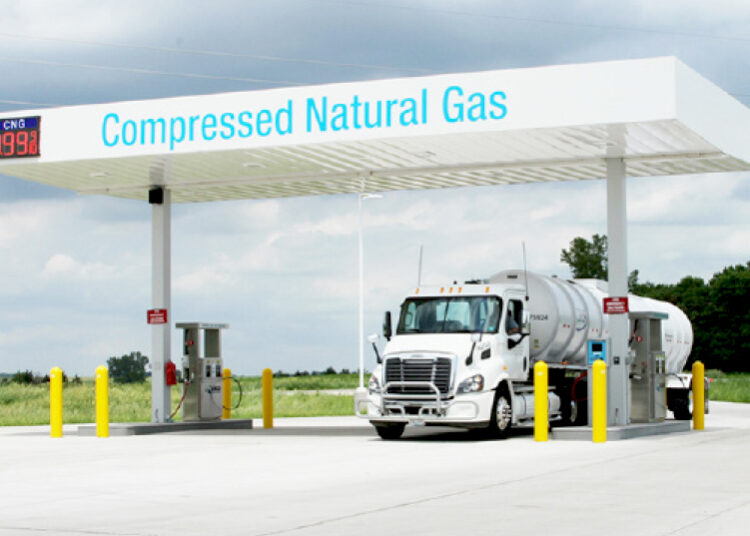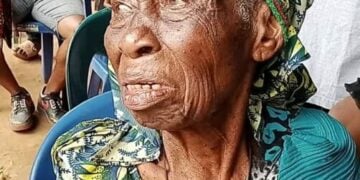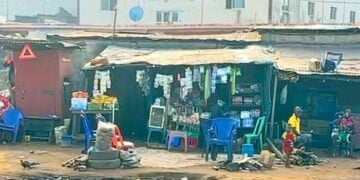The federal government has distributed over 1,000 additional Compressed Natural Gas (CNG) conversion kits to partner firms across five cities as part of its initiative to boost the adoption rate across the country.
Programme director, Presidential Compressed Natural Gas Initiative (P-CNGI), Michael Oluwagbemi, who handed over the kits to conversion companies in Abuja on Saturday, also called on state governments to invest in CNG infrastructure in their states in order to fasttrack the adoption rate.
Oluwagbemi said 50 conversion kits each are being distributed to 18 centres in five of the eight centres, where the project has been activated.
His words: “We are distributing 50 kits per centre in 18 centres across Nigeria. Additional 200 kits.
“So we are going to be about 1,200 or thereabouts in five cities today. Like I said, these five cities are the five of the eight cities so far.”
Oluwagbemi said by first quarter 2024, the total conversions would have hit 1,250,000
He explained the P-CNGI has liberalised the conversion process by dealing directly with commercial drivers instead of going through their unions.
According to him: “We expect that next that the next round of this project we will be having first come, first serve window at least once in a month and ensure this is an opportunity for commercial drivers who are not necessarily to sitting down with their union, vehicles, union bus that can just drive up without knowing anybody get converted.”
He recalled that in August as a response to the different protests across the country, President Bola Ahmed Tinubu directed there should be one million conversion kits available for free for the commercial sector or at deep discounts for the rideshare industries to enable transportation fare to be moderated across the country over the next couple of years.
He said it is a technical and logistic task to get it across to Nigerians because the conversion kits must be installed in the vehicles in a safe and reliable manner.
He said the P-CNGI so far has signed with over 75 conversion partners in eight states of Lagos, Ogun, Oyo, Edo, Delta, Kogi, Nassarawa, Federal Capital Territory (FCT) and Kaduna.
He added that the initiative will be adding nine states in the next eight weeks
He said the reason the CNG cannot be activated overnight in every state is because of the limitation in terms of where CNG can be dispensed to vehicles.
Meanwhile, Oluwagbemi emphasised the critical role states must play in realising President Bola Tinubu’s energy transition agenda.
He stressed that state governments, being direct beneficiaries of revenue from improved transportation and energy policies, should lead by example in investing in CNG infrastructure.
“I cannot emphasise enough the role of states in the energy transition programme of Mr. President. Ultimately, states own transportation policies, and the federal government can only encourage states to switch to energy-efficient vehicles and invest in infrastructure like pipelines,” Oluwagbemi said.
He also pointed out that states control most of the regulations surrounding transportation activities, and by investing in energy transition initiatives, they stand to gain from increased revenue distributions.
“When it comes to the regulation of transportation activities, it is the responsibility of states, and state governments are the number one beneficiaries of an increase in the distribution of revenue. Since they are the most significant beneficiaries, they should invest in it,” he said.
Oluwagbemi urged states to encourage private individuals, including civil servants, to convert their petrol-powered vehicles to CNG and to make direct investments in the dispensing of the product.
“States should encourage private individuals, including their civil servants, to convert their vehicles to CNG. They can also have direct investments in dispensing the product,” he added.
Oluwagbemi detailed the government’s deliberate efforts to strategically expand CNG infrastructure across major transit corridors, ensuring that the energy switch benefits the majority of Nigerians.
He highlighted three key routes—Calabar to Benin, Lagos to Kano, and Lagos to Benin via Lokoja—as critical zones for the rollout of CNG infrastructure.
“We are making sure that the investment is going to the corridor with the most users. Ninety per cent of Nigerians ply three major transit corridors: The Calabar to Benin transit corridor; the Lagos to Kano transit corridor; and the Lagos-Benin-Lokoja corridor,” Oluwagbemi noted.
He also explained that providing CNG refuelling stations along these corridors would significantly reduce transportation costs and the overall cost of goods, especially food.
“When we do that, there will be a reduction in the cost of food,” he said.
Oluwagbemi also addressed concerns raised by independent petroleum marketers and station operators regarding the high cost of installing add-ons for CNG dispensing.
He pointed to the Petroleum Industry Act, which allows members of the Independent Petroleum Marketers Association of Nigeria and the Major Oil Marketers Association of Nigeria to access the Downstream Gas Infrastructure Fund through the Nigerian Midstream and Downstream Petroleum Regulatory Authority.
“IPMAN members and MEMAN members can apply through the NMDPRA to access necessary funding for what we call add-ons. We are hoping that the MDGIF will partner with us to look at this issue more proactively to ensure that there is an easy template for add-ons,” he stated.
He further revealed that a study by the NMDPRA identified about 14,000 potential CNG add-on possibilities in Nigeria, signalling a significant opportunity to broaden CNG availability nationwide.





